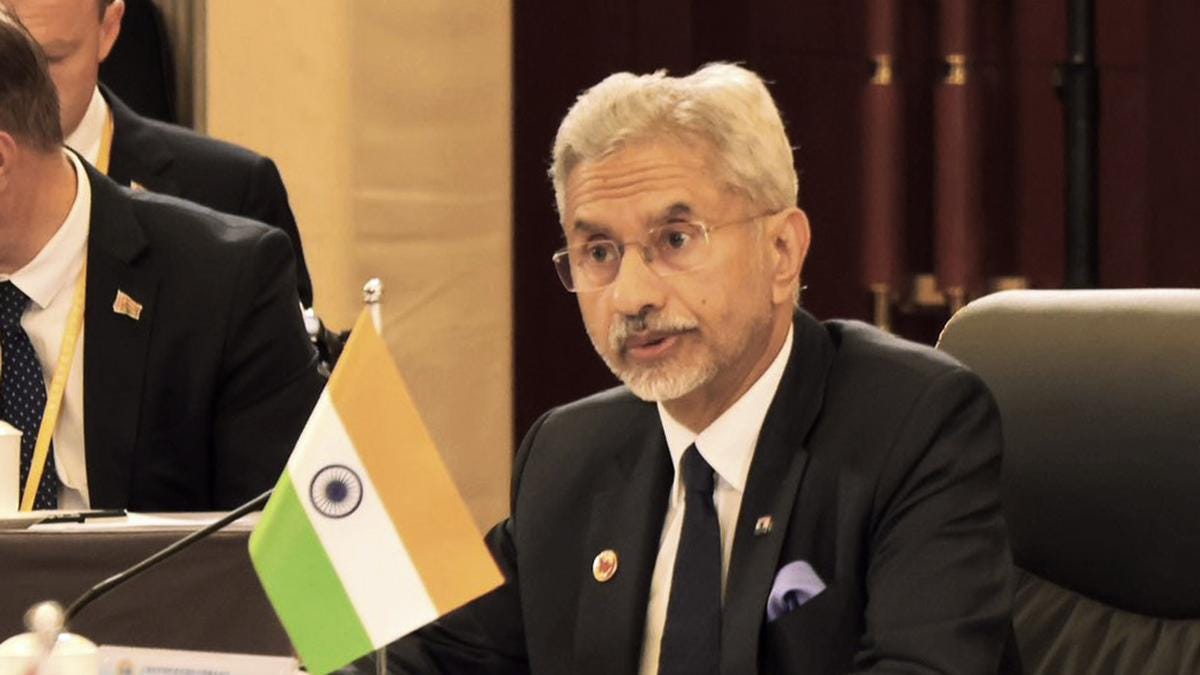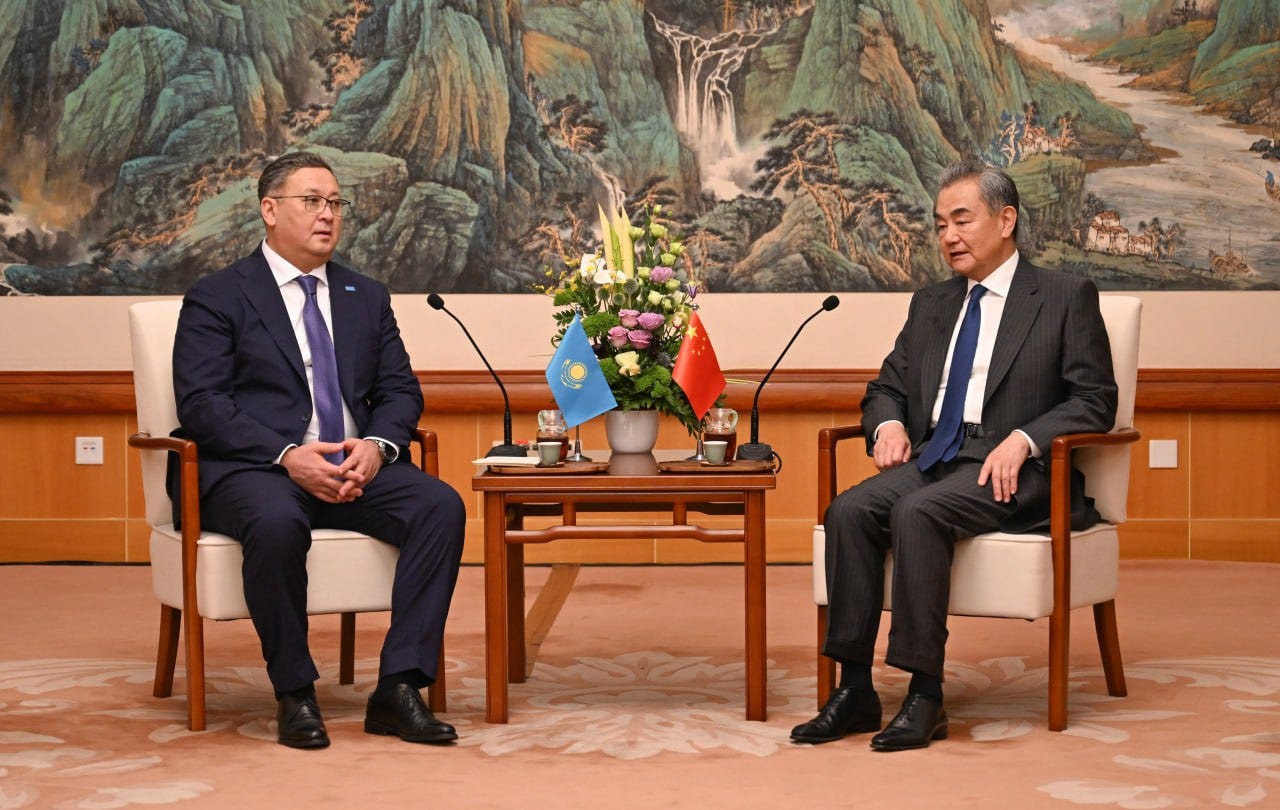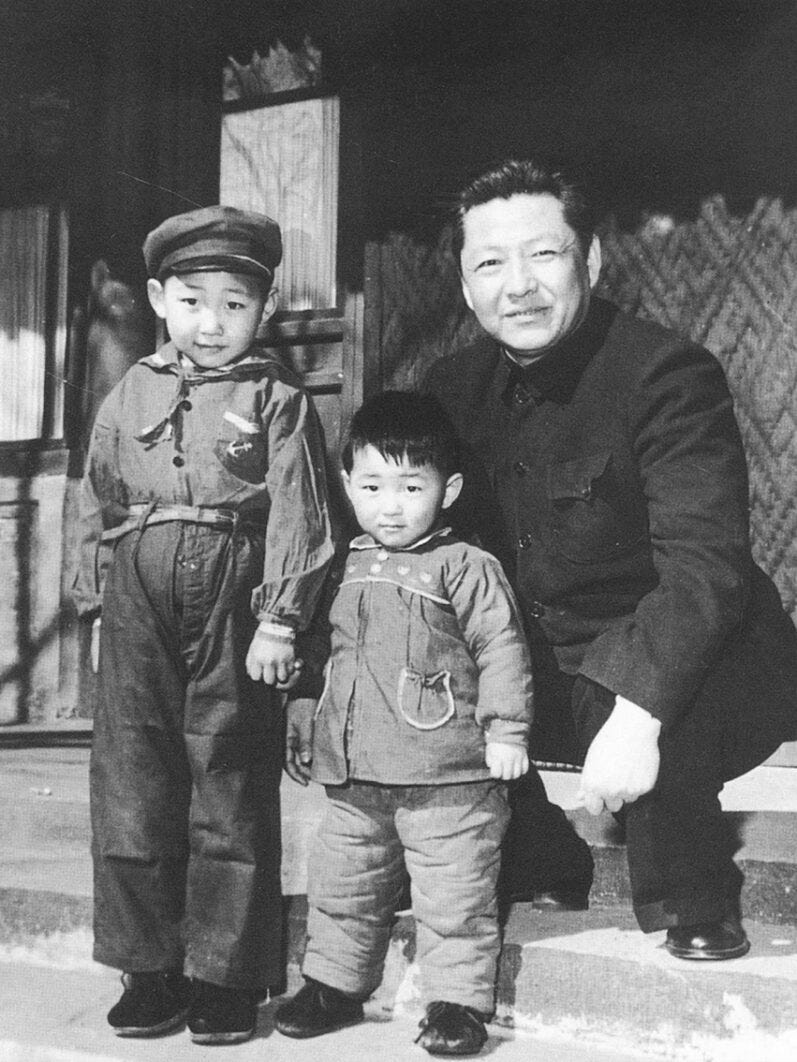China This Week: India’s SCO Terror Warning, Taiwan Invasion Drills, Nvidia Chips Return
This week in China, we explore key shifts in its domestic and foreign policy landscape.
China Quote 🗩
“Foreign spies have been using China’s postal system to ‘steal’ rare earths… an (unnamed) country that could not produce its own rare metals was stealing the minerals to shore up its own supplies.”
– China’s Ministry of State Security, in a statement posted on its official social media account.
Economic Activity🏦
China VC Funds Tap Global Investors for $2 Billion in Comeback
Bloomberg reports that China’s leading venture capital firms are launching new dollar-denominated funds worth over $2 billion, signalling renewed global interest in Chinese startups. Firms like LightSpeed China Partners are courting overseas investors with targeted bets on sectors like AI and deep tech, marking a cautious re-engagement with China’s private tech ecosystem.
Trump’s Russia Tariff Threat Risks Harming Ties With Modi, Xi
Katia Dmitrieva, Yian Lee, and Sudhi Ranjan Sen write in Bloomberg that US President Donald Trump’s proposed 100% secondary tariffs on Russian oil buyers could strain ties with China and India—two nations vital to US economic and strategic interests. Analysts warn the move may backfire, deepen scepticism of Trump’s trade tactics, and unify BRICS countries against perceived US volatility.
China growth beats expectations as Trump tariffs loom
Osmond Chia writes in BBC News that China's economy grew 5.2% year-on-year in Q2 2025, marginally beating forecasts despite US tariff threats and a continuing property slump. Manufacturing and exports drove growth, though retail sales slowed and home prices fell. Analysts warn of increasing uncertainty, suggesting further government stimulus may be needed to meet the 5% annual target.
China’s Belt and Road Investment and Construction Activity Hits Record
Financial Times reports that Chinese companies signed $124bn worth of Belt and Road Initiative (BRI) deals in the first half of 2025—surpassing the 2024 full-year total. Driven by trade tensions and slow domestic growth, Chinese firms are pursuing megadeals across Africa and Central Asia, with energy, mining, and green tech contracts reaching new highs.
China Threatens to Block Panama Ports Deal Unless Its Shipping Giant Is Part of It
The Wall Street Journal reports that Beijing is pressuring BlackRock and Mediterranean Shipping Co. to include state-owned Cosco as a stakeholder in a $23 billion global port deal involving Panama Canal terminals. China’s stance raises geopolitical concerns as U.S. President Trump threatens retaliation over perceived violations of the Panama Canal treaty.
China Rejects NATO Chief’s Warning of Sanctions Over Ukraine Trade
Anadolu Agency reports that Beijing has dismissed NATO Secretary-General Mark Rutte’s warning that China, India and Brazil could face secondary US sanctions for continued trade with Russia. China’s Foreign Ministry reiterated its opposition to unilateral sanctions, asserting that political dialogue—not pressure—is the only viable solution to the Ukraine crisis.
Trump’s Stablecoin Embrace Ups Pressure on China to Join Race
Caixin Global reports that the US’s regulatory push for stablecoins is intensifying calls within China to reconsider its crypto scepticism. With stablecoins gaining traction in the US, EU, and Asia, analysts warn that Beijing’s continued resistance could undermine its bid to internationalise the yuan and weaken its leverage in future digital finance systems.
Inside China🐉
Xi Jinping’s daddy issues
Katie Stallard writes in New Statesman that Joseph Torigian’s new biography of Xi Zhongxun, Xi Jinping’s father, offers a revealing account of how the Chinese leader’s concept of power was forged through family persecution during the Cultural Revolution. Rather than turning away from the party, both father and son doubled down on loyalty, shaping Xi’s deep resolve to preserve CCP control at all costs.
PLA Offers Back-to-Back Drill Updates as Taiwan’s Han Kuang Exercise Ramps Up
South China Morning Post reports that the PLA has released daily updates on joint military exercises coinciding with Taiwan’s largest-ever Han Kuang war games. The drills involved electronic warfare, naval combat, and air-sea coordination, reflecting Beijing’s pressure campaign amid rising cross-strait tensions. The PLA’s messaging signals a deliberate, synchronised response to Taiwan’s expanded military posture.
Challenges Mount for China’s Dialysis Providers Despite Growing Demand
Caixin Global reports that despite surging demand for dialysis in China due to rising kidney failure cases, the sector is under strain. Fierce price wars, with some clinics offering free treatment and patient incentives, are undermining service quality and sustainability, raising concerns about regulatory oversight and long-term patient care.
China and the World🌏
SCO Must Take Uncompromising Position on Terrorism, Says Jaishankar

The Hindu reports that External Affairs Minister S. Jaishankar urged SCO members to maintain a zero-tolerance stance on terrorism, referencing the April 2025 Pahalgam attack aimed at disrupting Kashmir’s tourism and fuelling religious division. Speaking in Tianjin, he criticised Pakistan’s inaction, highlighted transit blockages undermining economic cooperation, and advocated greater support for Afghanistan’s development.
Kazakh, Chinese Foreign Ministers Deepen Strategic Ties in Tianjin Meeting

The Astana Times reports that Kazakh Foreign Minister Murat Nurtleu and his Chinese counterpart Wang Yi met on the sidelines of the SCO Foreign Ministers’ Council to strengthen bilateral ties. The talks covered trade, transit, and energy cooperation, and reaffirmed commitments to implementing strategic agreements set by the two countries’ Presidents.
America was already losing to China on clean energy. Trump just sealed its fate
CNN reports that China installed more wind and solar power in one year than the entire US renewable energy capacity. Trump’s new law slashes subsidies for clean energy, raising electricity costs and weakening the US’s competitive edge. Meanwhile, China races ahead with over 500 GW in new wind and solar projects, bolstering its dominance in the sector.
Sirens and evacuations as Taipei rehearses to counter China invasion threat
BBC reports that Taiwan has launched its largest-ever civil defence exercise in Taipei, simulating a Chinese invasion. The drills involve mass evacuations, air raid sirens, traffic halts, and casualty simulations. Held alongside the Han Kuang war games, the Urban Resilience exercise aims to strengthen readiness amid growing military pressure from Beijing.
China’s cyber sector amplifies Beijing’s hacking of U.S. targets
The Washington Post reports that cyberattacks by suspected Chinese government-linked hackers against U.S. targets more than doubled last year, with over 330 incidents recorded. Officials attribute the spike to a state-driven model that rewards private contractors for offensive operations, making cyberespionage more persistent and adaptive under Beijing’s growing digital offensive strategy.
How China’s Military Is Flexing Its Power in the Pacific
The Wall Street Journal reports that China is expanding its military presence deeper into the Pacific, deploying ships and aircraft beyond traditional boundaries. This assertiveness reflects Beijing’s effort to counter perceived U.S. encroachment in the Asia-Pacific. In response, Washington is bolstering regional alliances and military readiness to deter further Chinese advances.
US Will Build Repair Facilities for the Philippine Navy Near the Disputed South China Sea
AP News reports that the US Navy will construct two boat repair and maintenance facilities in Palawan province, directly facing the South China Sea. The move signals tighter defence cooperation amid rising tensions with China. The US has reaffirmed its treaty obligations to defend the Philippines in case of an armed attack.
Japan Protests After Astellas Employee Jailed for Espionage in China
AP News reports that a Japanese national employed by Astellas Pharma has been sentenced to 3.5 years in prison by a Beijing court on espionage charges. Tokyo condemned the ruling as "extremely regrettable" and criticised the lack of transparency, citing concerns for Japanese citizens and corporate workers operating in China under vague national security laws.
Transsion wheels into Africa’s EV market with same playbook that conquered mobile phones
Rest of World reports that Chinese smartphone giant Transsion is applying its mobile market strategy to Africa’s EV sector, rapidly expanding TankVolt e-bikes across five countries. Leveraging manufacturing scale, local partnerships, and battery leasing models, Transsion is vying for leadership in Africa’s $28 billion EV market, but must overcome infrastructure gaps and scepticism about its cross-category success.
Why Big Tech is threatened by a global push for data sovereignty
Rest of World reports that developing countries like Nigeria, Vietnam, and India are demanding that tech giants store citizen data locally, challenging the extractive model of offshore data storage. African governments are investing in national data centres, while warning firms like Google and Microsoft to either comply or lose access.
Tech in China🖥️
Nvidia to resume sales of highly desired AI computer chips to China
Elaine Kurtenbach and Wyatte Grantham-Philips write in AP News that Nvidia has secured approval from the Trump administration to restart sales of its H20 AI chips to China. The decision follows months of lobbying and is linked to a broader trade agreement on rare earths. The move signals a partial reversal of prior export restrictions amid ongoing tech rivalry and strategic concerns.
Trump’s U-Turn on Nvidia Spurs Talk of Grand Bargain With China
Bloomberg reports that President Trump’s reversal on chipmaker Nvidia’s China sales has sparked speculation about a broader US-China tech deal. Commerce Secretary Lutnick said the aim is to keep China reliant on American chips. Analysts see the move as part of a transactional strategy ahead of a possible Trump-Xi summit.
Decypher Data Dive📊
New home prices across 70 of China’s biggest cities dropped 0.2 per cent on average in May on a month earlier, faster than April’s decline, though the year-on-year fall of 4.1 per cent marked an improvement on last month’s rate.
Image of the Week📸
Taiwan simulates China attack in city streets

— — —
Data By Bhupesh
Edited By Aurko
Produced by Decypher Team in New Delhi, India



